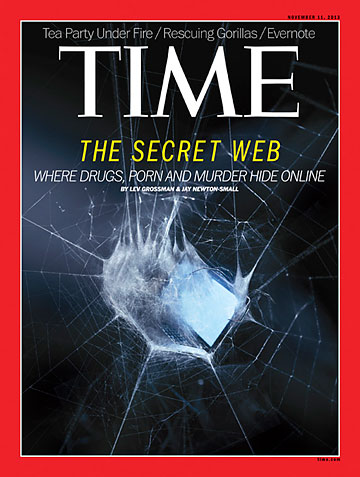
(4 of 8)
By the time he graduated, Ulbricht had become interested in the idea of the Internet as a venue for perfecting free markets. His greatest enemy--according to his LinkedIn profile--was the government. "The most widespread and systemic use of force is amongst institutions and governments, so this is my current point of effort," he wrote. "The best way to change a government is to change the minds of the governed, however. To that end, I am creating an economic simulation to give people a firsthand experience of what it would be like to live in a world without the systemic use of force."
After graduating from Penn State in 2009, Ulbricht went to Sydney, Australia, to visit his sister. It was there, allegedly, that he began working on what would become Silk Road and transforming himself into the Dread Pirate Roberts. By then, drug dealers were already active on the Deep Web, but their businesses tended to fail for two reasons: the money changing hands was traceable, and it was difficult to build trust with clients. Roberts would solve both of those problems. The double layer of anonymity created by Tor and Bitcoin made the money virtually untraceable. To establish trust, Roberts looked to two temples of legitimate commerce for his ideas: Amazon and eBay.
He was a quick study. Users of Silk Road describe a sophisticated, full-featured experience complete with buyer and seller reviews and customer forums. "When deciding whether or not to go with a vendor, I read the feedback on their page and also ratings from a few months ago," says one Silk Road client, who declined to be identified. "I also go to the forums and read the seller's review thread, and depending on the substance, I'll go to an 'avenger's' thread, where people from the Silk Road community post lab results for individual products." When transactions did go south, there was a dispute-resolution system. "Honestly it was like a candy store," says the user.
Products simply arrived by regular mail. "It generally looks like junk mail or information about moving here, or traveling there, or consultation stuff," the user explains. "Usually, when opening the package, you still won't know there are drugs in it unless you're looking for them." Silk Road's community had its own subculture, which skewed toward political outliers. "One memorable thread asked whether we were there for the drugs or the 'revolution,'" recalls the same user. "A lot of people answered 'came for the drugs, stayed for the revolution.'" Dread Pirate Roberts, or simply DPR, was hailed by Silk Road customers as an antiestablishment hero.
Silk Road launched in January 2011. Its existence was hardly kept a secret--with Tor making it possible to get in and out anonymously, why bother? Hiding would just have been bad for business. "It was basically an open thumbing of noses at law enforcement," Bharara says.
The FBI got its first glimpse of Ross Ulbricht that October. Someone named "altoid" had been promoting Silk Road in various chat rooms; then, in a Bitcoin forum, altoid posted an ad seeking an "IT pro in the bitcoin community" for "a venture-backed bitcoin-startup company," according to the complaint against Ulbricht. Ulbricht listed his real e-mail address as the contact for the position.
